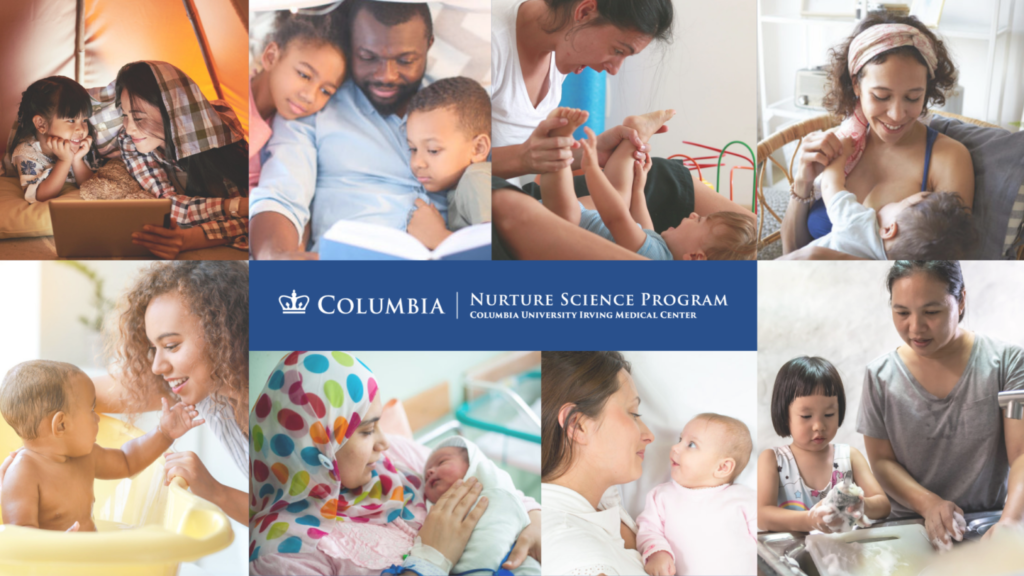Nurture Science Program Leadership Transition

After twenty-five years of overseeing breakthrough research, developing emotional connection models and practices, and fostering rewarding collaborations, I am stepping aside as Director of the Nurture Science Program. I am very pleased to announce that Dr. Dani Dumitriu will serve as the new Director of NSP and Dr. Michael Myers and Dr. Amie Hane will continue to serve as Co-Directors. In my new title as Founding Director Emeritus, I look forward to continuing to contribute to the program throughout the transition process and into the future.
My career has been defined by three major transitions—first in the 1970s, then in the late 1990s, and again now. There are few moments in life that are so defining that you realize, in real time, that you will never see things the same way again.
In the early 1970s, I remember being in Central Park in New York City where I observed children playing with their parents. And I had an epiphany! I realized that the relationship is a state between two people, and doesn’t depend on the traits of either person. I wasn’t looking at an emotionally connected child or an emotionally available parent, I was looking at a state of connection between mom and child or dad and child. This was huge, because you have to understand that, at the time, professionals in my line of work only ever evaluated and treated children and parents separately, not as a dynamic unit. This revolutionized my idea for intervention: a state is changeable, and it could be changed by creating emotional connection. In fact, I realized that traits were just states stuck in a certain environment. I was shaking with excitement and filled with hope that this insight could help children and their families. This desire drove me then, and it drives me still today.
But a paradigm shift takes time, and twenty-five years of clinical work and one published book later, I realized that my theories and intervention methods needed scientific backing. And so in the late 1990s, I made a transition few people in my field ever make: I left private practice and went to the laboratory bench. I believed that through basic and clinical research, I could identify the biological underpinnings of the state of emotional connection, and create a validated screen and intervention to observe and promote it.
And I accomplished more than I ever imagined possible. Over the course of my twenty-five years at Columbia, my lab showed that two hormones—oxytocin and secretin—play a critical role in gut-brain signaling and function; I was awarded a patent for the treatment of inflammatory bowel disease; I have described a testable hypothesis that a clinically observable four-phase calming cycle, during which two people’s bodies co-calm, acts through the underlying physiological mechanism of co-regulation. At NSP, my colleagues and I have tested through randomized control trials of Family Nurture Intervention a novel mother-child intervention to be used in neonatal and pediatric settings (we are in the middle of testing a brief intervention to create emotional connection between mother and preschool child over Zoom); and we have developed and validated the Welch Emotional Connection Screen (WECS), a brief, predictive, actionable and scalable tool that observes the behaviors of emotional connection between two people.
Since co-founding NSP in 2008 with Dr. Michael Myers, I have been so inspired by my collaborators—my research team and my champions. They exhibit daily dedication to helping families, and have made steadfast contributions to the vision that first inspired me in Central Park fifty years ago. And I couldn’t have done any of it without the close collaboration and support of our incredibly generous and visionary funders who make this pioneering work possible. Together, we have set the stage for a new paradigm of relational health: one based on the crucial role our bodies play in regulating each other. When we co-calm, we connect, love, learn, bridge, share, cooperate, and build.
And it is this commitment to emotional connection that brings us to this long-planned and welcome leadership transition today. I came to Columbia University to seek the scientific evidence I needed to promote the interventions I had developed in clinical practice. At last I have that evidence, and it’s the kind of evidence one cannot keep to oneself. I have enough, in fact, to fill ten books—and change lives all across the globe. So, I’d better get busy writing, while I continue to advise the Nurture Science Program team who will help our new director, together with our co-directors, to take the work to new heights.
Let’s take care of each other,

Martha G. Welch, MD, DFAPA
Founding Director Emeritus, Columbia Nurture Science Program
